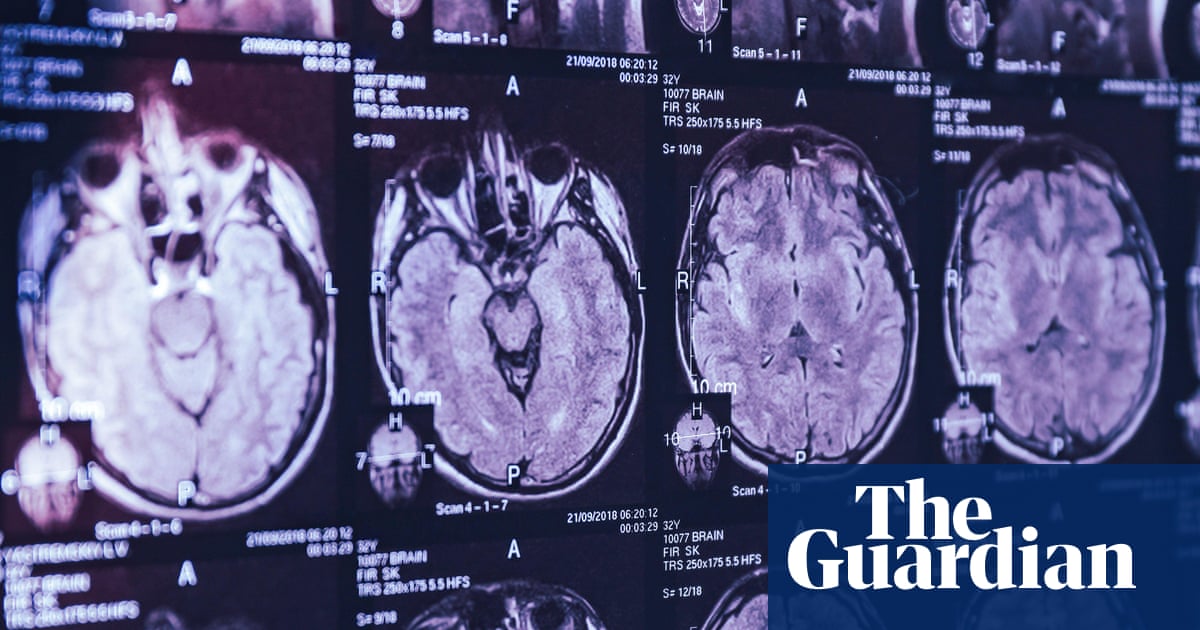
[ad_1]
Doctors in Canada fear they may be facing a previously unknown brain disease amid a string of cases involving memory loss, hallucinations and muscle atrophy.
New Brunswick politicians have demanded answers, but with so few cases, experts say there are many more questions than answers and have urged the public not to panic.
For more than a year, public health officials have been following a “cluster” of 43 cases of suspected neurological disease in the province with no known cause.
Residents were first notified of the investigation last week after a memo from the province’s public health agency asked doctors to be on the lookout for symptoms similar to the disease Creutzfeldt-Jakob – a rare and fatal brain disease caused by malformed proteins called prions.
“We collaborate with different national groups and experts; however, no clear cause has yet been identified, ”the memo said.
A number of symptoms, including memory loss, vision problems and abnormal jerking movements, have triggered an alert with the Canadian CJD Surveillance Network. Despite the initial similarities, screening produced no confirmed cases of CJD.
“We have no evidence to suggest that this is a prion disease,” said Dr. Alier Marrero, the neurologist in charge of the New Brunswick investigation.
Now, a team of researchers, including federal scientists, are rushing to determine whether they are struggling with a previously unknown neurological syndrome, or a series of unrelated, but previously known – and even treatable – diseases.
Marrero says patients initially complained of unexplained pain, spasms and changes in behavior – all symptoms that could be easily diagnosed as anxiety or depression.
But within 18 to 36 months, they began to develop cognitive decline, muscle wasting, drooling and chattering. A number of patients also began to experience frightening hallucinations, including the sensation of insects crawling on their skin.
In order for a new case to be included in the New Brunswick “cluster”, Marrero and his team conduct an in-depth study of the patient’s history, as well as a battery of tests including brain imaging, metabolic tests and toxicological and spinal specimens, to rule out other possible diseases such as dementia, neurodegenerative disorders, autoimmune diseases and possible infections.
Only one suspected case was recorded in 2015, but in 2019 there were 11 cases and 24 in 2020. Researchers estimate that five people died from the disease.
“We haven’t seen in the past 20+ years a cluster of diagnostic resistant neurological diseases like this,” said Michael Coulthart, head of the Canadian CJD Surveillance Network.
The majority of cases are linked to the Acadian peninsula, a sparsely populated region in the northeast of the province. The overall number of cases in the cluster remains low, but New Brunswick has a population of less than 800,000.
Health officials have refused to disclose the precise locations of the cases.
Marrero and his team consulted with experts in neurology, environmental health, field epidemiology, zoonotics and toxicology to better understand what could be behind the mysterious disease.
A growing team of researchers are working to determine if there is a common link to environmental cases or causes, including water sources, plants and insects.
“We don’t know what is the cause,” Marrero said. “At the moment, we only have more patients who seem to have this syndrome.”
News of the unknown disease has raised concerns, but experts have warned of the premature findings.
“I don’t really know if we even have a definite syndrome. There just isn’t enough information right now, ”said Valerie Sim, neurodegenerative disease researcher at the University of Alberta.
She noted that the key markers of degenerative neurological diseases had not been documented and that the group’s wide range of symptoms were “atypical” for most brain diseases. At the same time, certain cancers, dementia, or even misdiagnosis could explain the magnitude of the symptoms, she said.
The saga also exposes the frustrating reality of medicine: diagnosing a patient can be difficult, and it’s a task riddled with unknowns. Neurologists can often deploy a number of tools in treating a patient when the root cause of a disease is unclear, “then the patient somehow makes a recovery.” You leave without ever knowing what they really had, ”Sim said.
“We see strange neurological syndromes from time to time. Sometimes we find them out. Sometimes we don’t.
[ad_2]
Source link